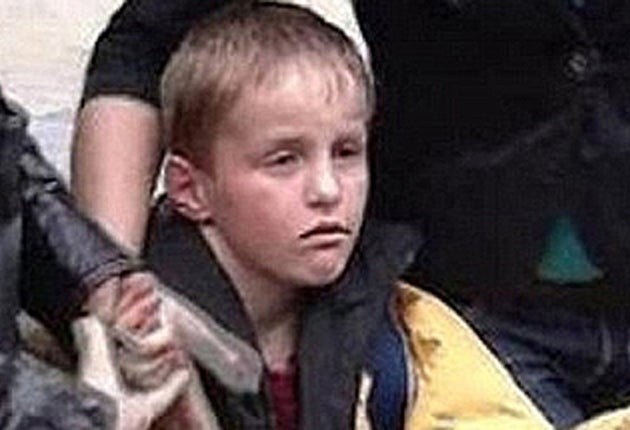To Russia without love
Diplomatic incident as American woman who adopted orphaned boy sends him home alone to Moscow

Russian authorities reacted with fury yesterday after an American woman sent her adopted seven-year-old son unaccompanied on a one-way flight to Moscow with a note in his pocket saying she wanted nothing more to do with him.
The boy, Artyom Savelyev, turned up on the doorstep of a Russia ministry yesterday, just six months after leaving a Russian orphanage to start a new life with a family in the United States.
The adoptive mother, Torry Hansen, bought the boy's ticket to Moscow's Domodedovo Airport and sent him off to his homeland with the note complaining that the boy had behavioural problems. "This child is mentally unstable. He is violent and has severe psychopathic issues," the letter said, according to Russian officials.
It went on to complain that the staff of the orphanage in the Russian Far East, where Ms Hansen had adopted Artyom, had been fully aware of the child's problems, but had tricked her into believing he was normal and healthy. She concluded: "As he is a Russian national, I am returning him to your guardianship and would like the adoption disannulled [sic]."
Sergey Lavrov, the Russian foreign minister, said the case was the "last straw" for US adoptions of Russian children, and announced there would be a freeze on any adoptions by American families until the US signed an international agreement that set out the conditions and obligations involved.
Adoptions have long been a fraught issue in Russia, and many politicians have called for them to be banned, citing cases where the new parents have physically abused the children they adopted, particularly in America.
The story prompted a wave of anti-American sentiment in the Russian media, with television news items complaining that Ms Hansen had "cynically returned the child to Russia as if he was an unwanted purchase".
Artyom, who is eight next week, was taken to the Science and Education Ministry by a man who had been paid by his US family to meet him at the airport. Nancy Hansen, the boy's adoptive grandmother, told the Associated Press that she had paid $200. She said the child was violent and angry with his adoptive mother, and they sent him back to Russia because they thought officials there could deal with him better.
Artyom is currently undergoing a medical and psychological check-up at a children's hospital in Moscow. Russian officials said that he would not return to the orphanage, but would be adopted by a Russian family.
The online website Gazeta.ru said the child had almost completely forgotten how to speak Russian during his time in the United States, and answered questions posed to him in his native language in English. He said his adoptive grandparents were "good" but his mother was "very bad", claimed the website. During his time in the US, he had been given a new name – Justin Hansen.
Allegedly he was told by his adoptive mother, from Shelbyville, Tennessee, that he was going on an excursion to Russia and would return home to the US in a couple of weeks. "His adoptive mother beat him and pulled him by the hair," said Pavel Astakhov, the Russian president's human rights ombudsman. "Reminding him of her makes him cry."
At the orphanage in the far eastern town of Partizansk, where the child lived before he was adopted, teachers denied that he had psychological problems. "He's a smart, clever kid," said Svetlana Glukhovtseva. "He took in everything we taught him very well."
The US ambassador in Moscow, John Beryle, said he was "deeply shocked" and "very angry" at the news. An estimated 1,600 Russian children were adopted by Americans last year.
Join our commenting forum
Join thought-provoking conversations, follow other Independent readers and see their replies
Comments